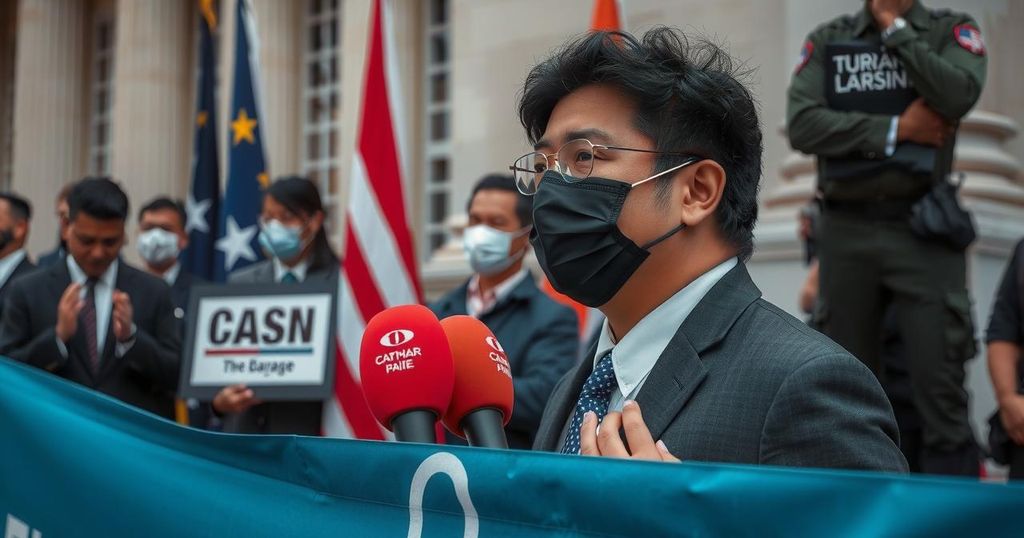Venezuelan Opposition Activists Claim Embassy Siege Amid Power Crisis

Opposition activists in the Argentine Embassy in Caracas report a month-long power outage, claiming a “siege” by Maduro’s government. They highlight violations of human rights and restrictions imposed by Venezuelan authorities. The situation reflects increasing political tensions following contested election results and strained diplomatic ties between Venezuela and Argentina.
Five Venezuelan opposition activists currently residing in the Argentine Embassy in Caracas have reported enduring a month-long power outage, which they claim amounts to a “siege” orchestrated by President Nicolás Maduro’s administration. These individuals have taken refuge since March in response to arrest warrants issued against them related to allegations of attempting to destabilize the Venezuelan government. The activists argue that the Maduro government has further exacerbated their situation by restricting water supply and has created conditions that effectively imprison them within the embassy’s confines.
Magalli Meda, a close advisor to opposition leader María Corina Machado, condemned these actions as a flagrant violation of their human rights, stating that the lack of electricity has transformed the embassy into an “embassy prison.” Venezuelan authorities, however, place the blame for the power cut on alleged unpaid service charges, as conveyed by Diosdado Cabello, the Venezuelan interior minister.
The political tensions in Venezuela continue to escalate as the Machado-led opposition maintains that their candidate, Edmundo González Urrutia, won the presidential elections held on July 28, a claim that Maduro’s government contests. Although the electoral commission has recognized Maduro as the victor, their credibility is under scrutiny by numerous nations. Earlier this year, Argentina’s diplomatic personnel vacated the embassy due to deteriorating relations following allegations of election irregularities.
Meda asserts that the Maduro government has taken measures to prevent diplomats from other nations from engaging with the opposition figureheads, leading to what she describes as a diplomatic standoff. Furthermore, the relationship between Argentina and Venezuela has been further strained by the recent arrest of an Argentine Border Guard officer in Venezuela, accused of terrorism—a charge the Argentine government vehemently disputes, labeling the incident an “abduction” based on false pretenses.
The situation involving the Venezuelan opposition figures holed up in the Argentine Embassy illustrates the ongoing political turmoil in Venezuela under President Nicolás Maduro’s regime. These individuals have faced arrest warrants for perceived threats to state stability, leading them to seek refuge in a foreign embassy. The lack of essential services, such as electricity and water, exacerbates their claim of being besieged, highlighting not only the internal struggles they face but also the strained diplomatic relations between Venezuela and certain countries, notably Argentina.
In conclusion, the conditions faced by the Venezuelan opposition figures in Argentina’s Embassy underscore the humanitarian and political crises within Venezuela. The allegations of a government-led siege, compounded by the suspension of basic services and geopolitical tensions with Argentina, reveal the critical complexities in Venezuela’s political landscape. As the opposition continues to push back against accusations of electoral wrongdoing, the international community’s response and involvement remain pivotal in resolving these issues.
Original Source: www.batimes.com.ar







